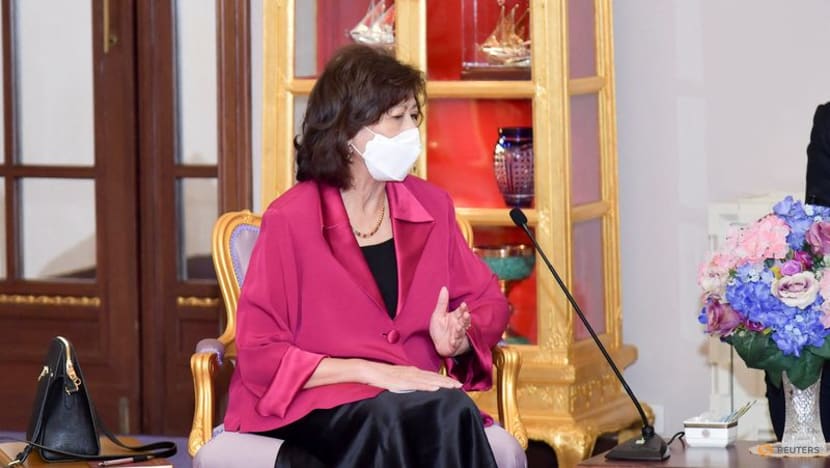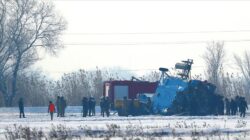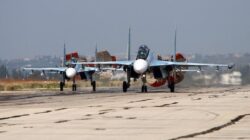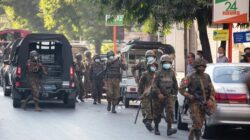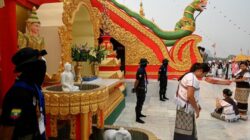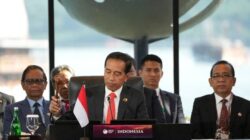SINGAPORE: Myanmar’s military regime must be overlooked or excluded from any impending peace process, according to Noeleen Heyzer, the UN’s special envoy to the conflict-torn country.
On February 1, 2021, the junta took control in a coup.
“When I say the military isn’t legitimate, I don’t mean they don’t play a part. They play an important role. But they are not the legitimate administration at this time,” Ms Heyzer, a former UN undersecretary-general who was appointed as the UN’s special envoy to Myanmar a few weeks ago, told CNA in an interview on Monday (Jan 31).
Heyzer made the remarks in response to assertions by the pro-democracy shadow National Unity Government, which maintains that the military, with its history of violence, should be completely removed from any discussions about the country’s future.
More than 1,400 people have been slain and at least 12,000 have been imprisoned since Myanmar’s military takeover in February of last year. As a result of the rising violence, many businesses and factories have closed, leading to a rise in hunger and poverty in the country.
In December, the United Nations Security Council denounced the reported massacre of at least 35 persons in eastern Kayah State, including four children and representatives of the humanitarian organization Save the Children.
“Unless we find a means to genuinely stop it, the killing will get worse,” Ms Heyzer said on the eve of the one-year anniversary of the military takeover.
Ms Heyzer, on the other hand, emphasized that, while the military must be included in any future peace process, the junta cannot be the driving force behind it.
She also urged youth activists protesting against the Tatmadaw – Myanmar’s official name for its armed forces – to temper their position and consider the long term.
“I know that many young people, particularly young people, are willing to die fighting for total political revolution.” “She stated.
“Any political revolution necessitates a process, and it will not occur quickly. “As a result, I want them to have something to live for, not something to die for,” she explained.
HUMANITARIAN “PAUSE” THE FIRST STEP
The UN special envoy reiterated her plea for a humanitarian “pause” as a critical first step toward putting an end to the violence.
When she first assumed office six weeks ago, she advocated for a comprehensive ceasefire, but this has been widely ignored by both the military junta and pro-democracy demonstrators, some of whom say that people protecting themselves from being shot constitutes lawful self-defense.
Ms Heyzer reiterated her plea: “The individuals caught up in this battle are, sadly, civilians, and I look at the figures in front of me: In Myanmar, 25 million people have slipped into poverty, and 14.4 million people require humanitarian aid.
“What people on the ground desire are tangible results that will help them improve their lives.””
She continued, saying: “And I believe that the humanitarian pause and humanitarian corridor are one way to do it, because people are suffering and thus the protection issue is critical; access to COVID-19 vaccines would be critical; access to food, access to medicine; and this will at least build some trust.”
Ms Heyzer, the first Southeast Asian to serve as UN special envoy to Myanmar, also stated that the Association of Southeast Asian Nations (ASEAN) is striving to put in place a five-point peace plan that includes a suspension of violence.
That is why she stated that collaboration with the UN is “very vital.”
Last year, ASEAN surprised many by deviating from its non-interference stance by excluding coup leader Senior General Min Aung Hlaing from attending the ASEAN meeting in October. This approach, however, has been weakened by Cambodia, ASEAN’s new chair, who has taken a more reconciliatory stance.
Concerning former state counsellor Aung San Suu Kyi, the UN special envoy stated that the deposed civilian leader may be a “good influence” in any future negotiation to resolve the Myanmar problem, and that she would try to meet with her if feasible.
Ms Heyzer, on the other hand, stressed that meeting Aung San Suu Kyi was not her main goal, and that caring for the most vulnerable in Myanmar’s wrecked society was more essential. Attempts by international representatives to meet with the former civilian leader have been mainly denied by the military.
A military-led court has indicted Aung San Suu Kyi on more than ten offenses, including violation of Myanmar’s official secrets act and corruption. If she is found guilty on all charges, she might be imprisoned for the rest of her life.
So far, she has been condemned to six years in prison for illegally having walkie-talkies and violating COVID-19 guidelines.
Many human rights groups have stated that all of these charges are politically motivated. Court proceedings are also held behind closed doors, with gag orders imposed on her lawyers.
Ms Heyzer, a frequent visitor to the nation, finished by declaring that in the end, only the people of Myanmar can be “their own savior.”
The whole interview will air on CNA In Conversation on Wednesday, February 2 at 9 p.m. (SIN/HK).
Source: CNA


